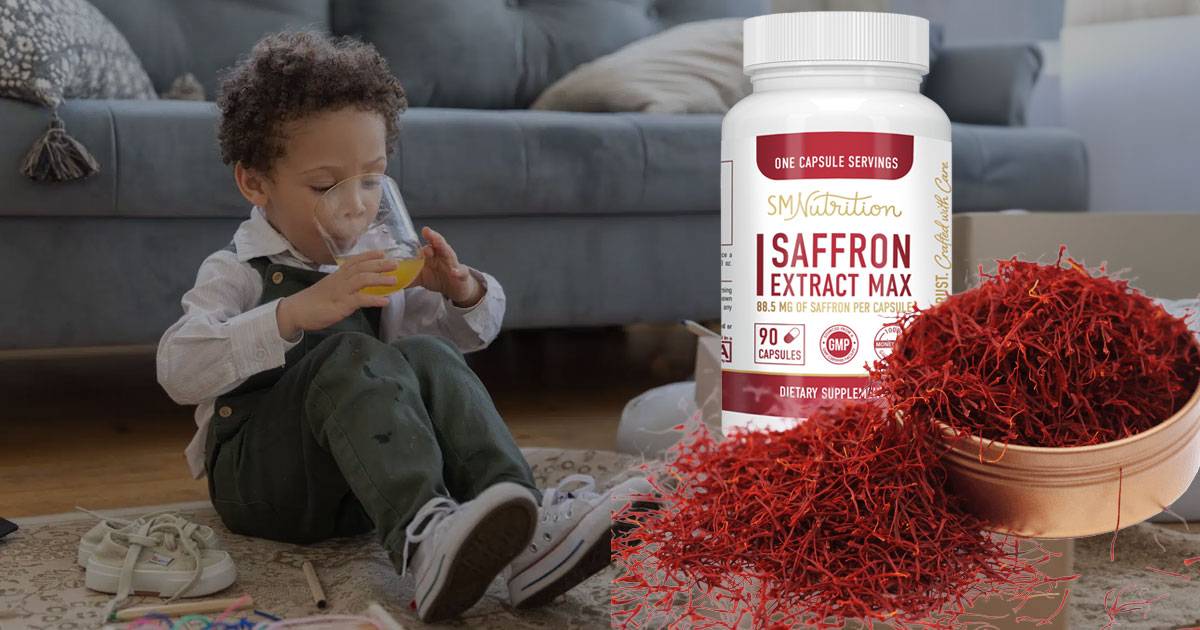Saffron for ADHD: The Potential Benefits and How to Use It Safely

Saffron is one of the world’s most valuable spices, coming from the Crocus sativus flower. Each flower has only a few stigmas, which are carefully picked by hand and dried to make saffron. This spice has been grown since ancient times, particularly in Greece, and today, Iran produces over 90% of the world’s saffron.
Growing saffron is hard work and needs the right weather, well-drained soil, and lots of sunlight. Farmers plant saffron bulbs in late summer and harvest the red stigmas in autumn. This careful process ensures that saffron remains high-quality and pure, making it very precious.
The global market for saffron is booming, expected to grow by 7.1% annually from 2024 to 2030. This effort is worth it because saffron is used not only in cooking but also in medicine, cosmetics, and potentially for treating conditions like ADHD.
The Benefits of Saffron in the Body
Saffron offers many health benefits. A study in the Frontiers of Nutrition found that saffron can boost mood and reduce depression and anxiety.
- Antioxidants: Saffron contains crocin and safranal, which help fight harmful free radicals in the body.
- Reduces Inflammation: It lowers inflammation, helping to prevent chronic illnesses.
- Improves Mood: Saffron has been shown to lessen depression and anxiety.
- Supports Eye Health: Carotenoids in saffron help keep your eyes healthy and may improve vision.
- Helps with Weight Management: Studies show that saffron can reduce appetite and aid in weight loss.
Additionally, recent research is looking into saffron’s potential to help manage ADHD symptoms, providing hope as a natural option or addition to traditional treatments.
Saffron and ADHD: How It Can Help
ADHD, or Attention Deficit Hyperactivity Disorder, makes it hard for people to focus, control impulses, and stay still. Common symptoms include trouble paying attention, being overly active, and acting without thinking. These issues can affect daily life, school, work, and relationships.
Can Saffron Help with ADHD?
Recent studies show promising results for saffron in managing ADHD symptoms:
- Better Attention: Saffron has been shown to improve focus and attention spans.
- Reduced Hyperactivity: It may lower excessive activity and restlessness.
- Works with Medications: Saffron can be used along with traditional ADHD medications like methylphenidate to enhance effects and potentially reduce side effects.
How Saffron Can Help with ADHD
Saffron might help manage ADHD because it affects important brain chemicals. Here’s how it works:
- Dopamine Balance: Dopamine is crucial for focus and motivation. Saffron may help balance dopamine levels, improving concentration.
- Serotonin Boost: Serotonin helps with mood and calmness. By boosting serotonin, saffron might reduce anxiety and improve overall mood.
- Noradrenaline Impact: This chemical helps with alertness. Saffron might make people more alert and less impulsive.
Saffron’s antioxidant and anti-inflammatory properties also support brain health, which could reduce stress and inflammation linked to ADHD.
How to Take Saffron for ADHD
If you want to try saffron for ADHD, here’s what you need to know:
- Forms: Saffron comes in different forms:
- Capsules: Pre-measured doses for easy use.
- Powder: Can be mixed into drinks or food.
- Dried Threads: Added to meals or made into tea.
- Dosage: The right amount of saffron depends on age:
- Children and Teenagers: Studies suggest 20mg to 30mg per day.
- Adults: Slightly higher doses might be needed, but it’s best to ask a doctor.
Considerations for Taking Saffron for ADHD
Saffron might help with ADHD symptoms, but there are important things to think about before using it.
1. Consult a Healthcare Provider
Talk to a doctor or healthcare provider to figure out the right dose and make sure saffron is safe for you or your child. It’s also important to discuss any other medications you’re taking, since saffron might interact with them.
2. Watch for Side Effects
Some people may feel dizzy, nauseous, or experience changes in appetite. If this happens, stop taking saffron and talk to your doctor. Also, be aware of potential allergic reactions like rash, itching, or trouble breathing.
3. Quality and Source
Make sure to buy high-quality saffron from trusted suppliers to avoid fake products that could be unsafe. Look for supplements with clear labels and dosage instructions.
4. Pregnancy and Breastfeeding
If you are pregnant or breastfeeding, be careful with saffron because it can affect uterine contractions and milk production. Always consult a healthcare provider first.
5. Dosage and Administration
Start with a low dose to see how your body reacts, and increase gradually if needed, under medical supervision. Keep track of any changes in symptoms or side effects and let your healthcare provider know.
6. Long-Term Use
We don’t know everything about the long-term safety of taking saffron regularly. It’s important to check in with your healthcare provider regularly to review its continued use.
7. Child-Specific Concerns
Children need different doses than adults. Follow the guidelines carefully and consult a pediatrician to ensure the correct amount is given.
Is It Good to Add Saffron Supplement to Your ADHD Management?
In summary, saffron could be a helpful addition to managing ADHD symptoms. It might improve focus, reduce hyperactivity, and work well with traditional ADHD medications. However, it’s important to be cautious when adding saffron to your treatment plan.
Always talk to a healthcare provider before starting saffron to find the right dose and make sure it’s safe for you or your child. Be aware of any possible side effects and buy high-quality saffron from trusted sources to ensure it’s pure and effective.
Adding saffron to your ADHD management plan could be beneficial, but it should be done with medical advice. With the right guidance, saffron might offer extra help in managing ADHD symptoms.
